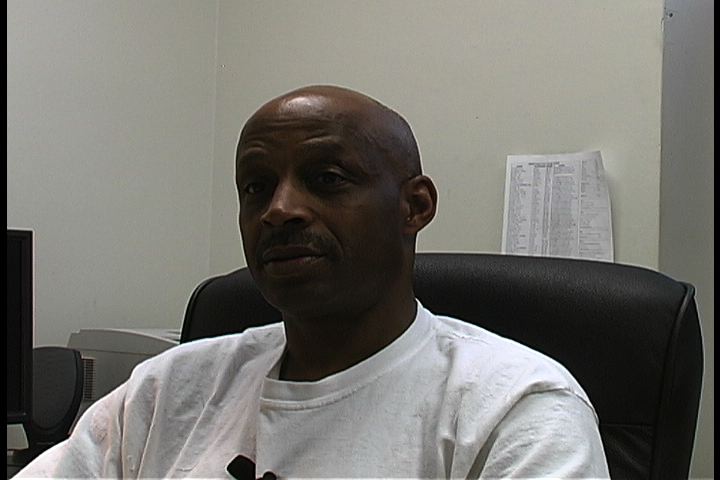 |
||
 |
 |
|
 |
||

|
Quicktime Clip (Broadband) Quicktime Clip (Modem) |
RealPlayer Clip (Broadband) RealPlayer Clip (Modem) |
|

|
||||||||||||||
|
Leroy Orange Leroy Orange was sentenced to death for four murders that his half-brother, Leonard Kidd, testified he alone committed without Orange's participation or knowledge. The conviction rested primarily on Orange's confession, which he contended had been extracted by torture - beating, suffocation, electroshock - at the hands of Chicago Police Lieutenant Jon Burge and other officers at Area 2 police headquarters on the city's south side. Orange was among 14 Chicago men sentenced to death based in whole or part on confessions allegedly extracted by torture in south side police stations during the 1980s. The only corroboration of Orange's
confession was a statement by Kidd - also allegedly obtained through torture
at Area 2 - blaming the murders on Orange. Before Orange's trial, Kidd
recanted his statement inculpating Orange and, against the advice of counsel,
testified as a defense witness at Orange's trial. Kidd's admission on
the stand that he committed the crime virtually assured his own conviction
and ultimate death sentence. After Orange's conviction and death sentence were affirmed on direct appeal, People v. Orange, 121 Ill. 2d 364 (1988), he filed a pro se petition for post-conviction relief in the trial court. Bluhm Legal Clinic Director Thomas F. Geraghty and clinic students entered the case and filed an amended petition alleging that Earl Washington's (Orange's original attorney) failure to investigate the torture allegations and to present evidence in mitigation constituted ineffective assistance of counsel. The hearing was pending when Governor Ryan on January 10, 2003, granted Orange a full pardon based on innocence, criticizing prosecutors and the judiciary for relying on "procedural technicalities at the exclusion of the quest for truth" throughout the case. "In some way," said Ryan, "I can see how rogue cops, 20 years ago, can run wild. I can see how, in a different time, they perhaps were able to manipulate the system. What I can't understand is why the courts can't find a way to act in the interest of justice." (excerpted from the Center
on Wrongful Conviction web site, written by Rob Warden) |
|
History (News) |
Creators' Statement |
Artists' Bios |
Contributing Exonerees |
Northern California Innocence Project |